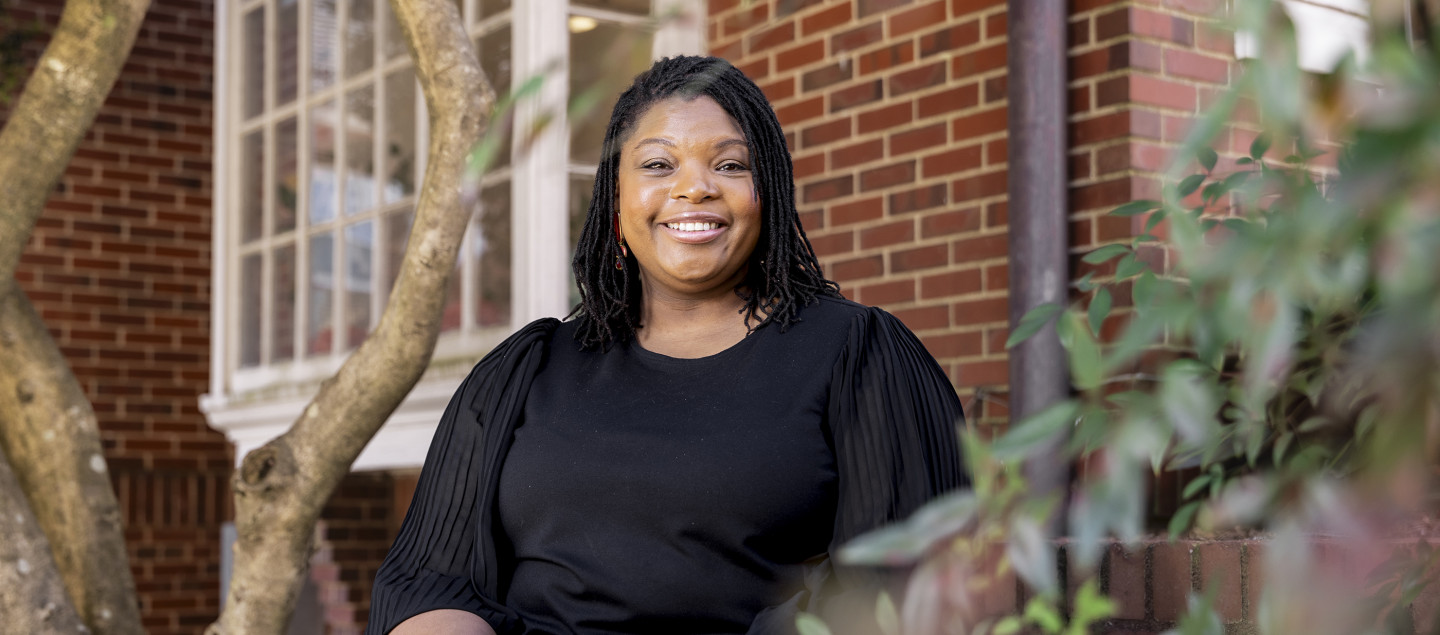From childhood sleuth to financial well-being expert

By the time she was in middle school, Kimberly Watkins knew which bills her parents hadn’t paid by the color of the statement in the envelope.
“There was always this cloud of mystery around money, so the only way to find out about it was to be a little detective,” she said. “I would just go through the mail and read things, and when the envelopes were pink, I knew we were in bad shape.”
While money was rarely discussed in Watkins’ household, she realized early on her mom was a spender and her dad was a saver. That was the source of a lot of strife and arguing.
Years later, the cycle repeated itself early on in Watkins’ own marriage. She and husband Daniel both had good jobs, but somehow, there was never enough money. Marital strife followed.
“It was death by $5 here, $10 there, like leaks in a boat,” she said.
The turning point happened during a conversation in a parking lot outside an OfficeMax, of all places.
“I said, ‘Daniel, when we got married, you said you didn’t believe in divorce. Do you still not believe in divorce?’” Watkins said. “And he said, ‘I don’t know.’ To know that he had changed his mind on something that important in such a short time, I was like ‘Something’s not right here.’”
Their marriage, and her career, took a sharp turn by the time Watkins arrived at their apartment later that day.
“Before I even opened up the door, I said ‘I want peace in my home,’” she said. “I was tired of fighting.”
The couple soon enrolled in financial education courses, then began teaching one. They paid off their bills and got out of debt, and their marriage improved.
Inspired, Watkins went back to school for her doctorate, graduating in 2018 with a degree in financial planning from the College of Family and Consumer Sciences, where she now serves as an assistant professor. By then, she and her husband had become parents of twins, Harper and Mason.
Her dissertation was on parent relationship quality and its association with financial well-being, informed by her own experience as a daughter, wife and new mother.
“Becoming a mother did shape my research at that point because I was spending more time looking at parenthood materials than academic articles,” she said.
Watkins now integrates her personal narrative into the capstone course she teaches in financial planning for both undergraduate and graduate students, where students develop a comprehensive financial plan for real clients.
“I tell a lot of my business,” she said with a laugh, “because while you may know exactly what to do with money, you may have money issues of your own. Guess what? So do your professors. So do the financial planners. So, I normalize the fact that we all struggle with it in some way, but there are ways to work around it. We also talk about money issues in relationships because it is the number one issue that comes up for couples.”
Watkins’ research has focused largely on financial well-being of marginalized populations, but she’s also developed an interest in neurodivergence since being diagnosed with ADHD as an adult.
“I’m interested in learning what we can do to make sure people who are neurodiverse can do this job and do it well,” she said.
While the tendency might be to look back on her family’s early financial struggles with regret, Watkins said ultimately, she’s grateful for the lessons she learned along the way.
“All those stories are things that I have to be able to connect with people and to keep this work humanized as much as possible,” she said.
In this category: Finance
-
Estate planning workshop aims to bridge knowledge gap for Georgians
Free workshop features attorney presentations to help residents protect assets

-
Expert tips to avoid overspending on clothes
Faculty member Michelle Kruger offers some insight to consumers considering a wardrobe upgrade

-
Hargrove named assistant director of UGA Love and Money Center
Licensed marriage and family therapist will teach graduate-level courses and lead outreach efforts

-
Organize your expenses better with these expert tips
Faculty member John Grable answers some common questions related to budgeting

-
From childhood sleuth to financial well-being expert
Watkins uses real-life examples to understand money issues in relationships
